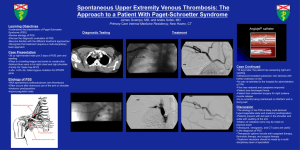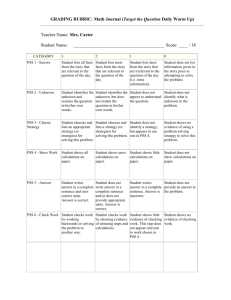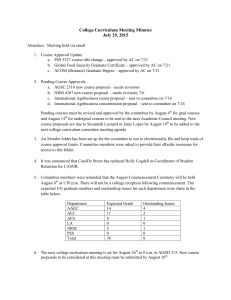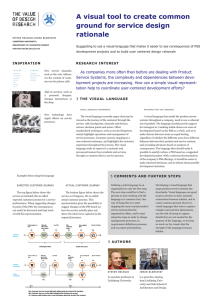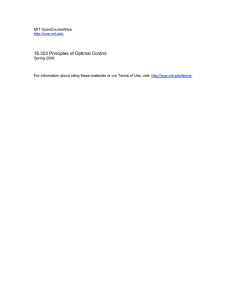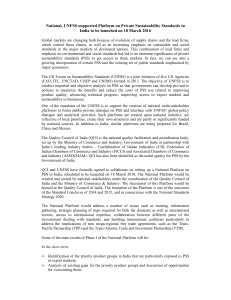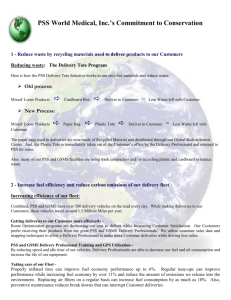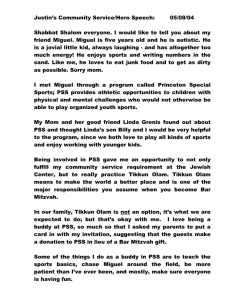Glenn Palmer Pennsylvania State University and Executive Director
advertisement
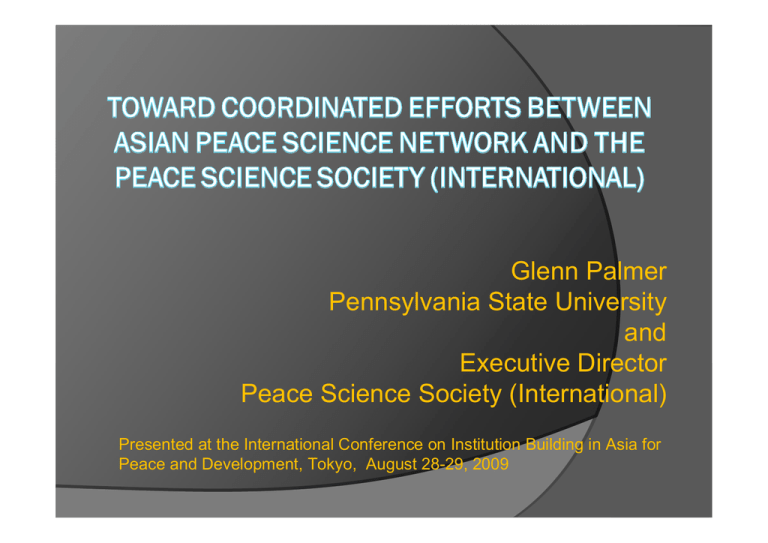
Glenn Palmer Pennsylvania State University and Executive Director Peace Science Society (International) Presented at the International Conference on Institution Building in Asia for Peace and Development, Tokyo, August 28-29, 2009 1. 2. 3. 4. My goal is to show that coordination among PSS(I) and APSN peace scholars can be very fruitful. To demonstrate the relevance and value of coordination I will present: Outline of PSS(I) Summary of the recent research in Conflict Management and Peace Science; Description of approaches presented at recent Peace Science meetings Examples of coordination between PSS(I) and NEPS and EPSS 2 PSS(I): http://pss.la.psu.edu/ Founded in 1963 by Walter Isard and others Consists of about 225 regular and 75 student members; 1/3 outside USA About 25 institutional members Administered by executive director and council elected from membership Publishes Conflict Management and Peace Science Gives: Walter Isard Award Stuart Bremer Award Founders’ Medal Holds annual meetings in North America in the fall. “Best meeting in the business” 3 Primary journal of the Peace Science Society (International) (along with Journal of Conflict Resolution Publishes work on sources of conflict, conflict management, and deals particularly with international relations Published five time per year by Sage. Edited by Glenn Palmer 4 Survey of articles in CMPS over the last four years: 68 articles: 45 quantitative 19 formal (usually employing game theory) 4 formal and quantitative 5 Analyses of international conflict (43%) Terrorism (10%) Introduction of data sets (9%) International mediation/negotiation (9%) Civil war, refugees, psychological sources and effects of conflict (6%) each 6 ¾ ¾ ¾ ¾ ¾ The pacifying effects of trade are greater if the countries are closer to each other The pacifying effects of democracy are restricted to the wealthiest countries Conflicts over territory (rather than over policy or regime change) are more likely to escalate, to last longer, and to involver high fatalities Democratic governments of the left are more likely to be the targets of terrorism than governments of the right Increasing the strength of host governments is an effective way of defeating terrorists 7 Meetings held every fall 2009: University of North Carolina 2008: Claremont Graduate University About 200-250 participants; perhaps 25-30% graduate students 67 paper presentations, 20 posters over two and-a-half days Two simultaneous sessions; 20-minutes presentations with 10 minutes for questions. Conversations held in halls Emphasizes younger scholars, graduate students, newer works. Cutting edge research 8 1. 2. 3. 4. Presentations at meeting differ from what appears in the CMPS. This may be an indicator of what’s hot and what’s not. Four largest categories of work presented at 2006, 2007 and 2008 meetings: Civil war – 25% (v. 6% in CMPS) International conflict – 19% (v. 43%) Negotiation/mediation – 17% (v. 9%) Domestic factors/foreign policy – 19% (v. 4%) 9 ¾ ¾ ¾ ¾ ¾ Begun less than 10 years ago. Membership in NEPS is largely made up of young scholars and graduate students NEPS holds annual meetings in June at the Jan Tinbergen Institute in Amsterdam. Quality of meetings has progressed signficantly. Best graduate student paper from NEPS and PSS(I) meetings are funded to present the paper at the other meeting. 2008 winners: Bernd Beber, Columbia University, “Summer Holidays and Conflict Resolution: Event Timing as an Instrument for the International Mediation of Wars” Dominic Rohner, Cambridge University, “Information, Reputation, and Ethnic Conflict” 10 We encourage participation across the ocean: At 2009 NEPS meeting, thirteen papers presented were by North Americans At the 2007 and 2008 PSS(I) meetings, there were 9 and 11papers, respectively, presented by nonAmericans. Membership overlaps significantly: Europeans on PSS(I) council and in other offices Americans on NEPS award committee Still, they are distinct entities 11 Coordination between young colleagues at Koc University (Istanbul) and PSS(I) First meeting will be January 8-9, 2010 Will be US participation at that meeting PSS(I) encouraged development, but it is autonomous organization 12 Attendance at meetings: -Awareness of each others research agendas -Personal connection -Co-authored work -Development and awareness of funding opportunities Graduate student involvement Awareness of research projects and interests - PSS listserve - PSS Newsletter - Creation of Asian-North American Coordinating Committee (ANACC) 13 We want to work toward fruitful future collaboration. 14
